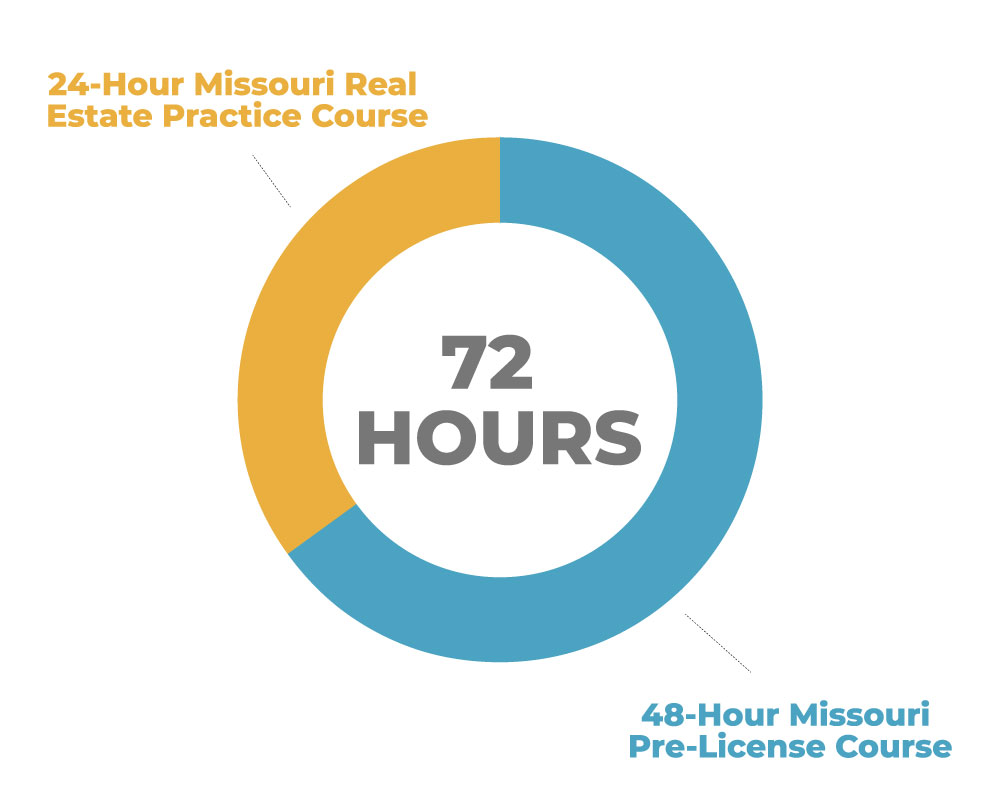
You have likely encountered procuring cause disputes if you are in real estate. Whether you are working with your own clients, or with another agent in the office, understanding how procuring cause works can help you avoid conflict and make sure that you receive the commission you earned.
Procuring Cause
The facts and circumstances in a case will determine whether procuring cause can be determined. These factors are considered by the panel and applied in accordance with the guidelines.
Did the broker establish a direct connection between his sale and that of the property?
A broker might only be entitled to a percentage of a commission if it is established that the property was brought and sold by him. This theory is known as the procuring cause theory.

Is it legal for the broker to offer the property?
A broker must be legally bound to sell the property in most states to receive a commission. A few states allow a broker to still receive a commission, even if the seller does not have a contractual relationship.
Does the broker have a legitimate reason to bring the property to the buyer's attention?
Procuring Cause Analysis must be fact-sensitive. Panel members are required to look at all the relevant factors. These factors include whether the broker submitted a proposal that was the basis for the sale and whether the broker met any requirements of the buyers.
Does the broker have an ongoing relationship with the client?
Brokers often make the mistake of believing that the commission should go to them simply because they maintain a relationship with their client. This is a mistake because the broker representing the client must be different.
Did the buyer divulge to the seller that a certain broker had brought him to the transaction?

It should also be remembered that, in many states, it is against the law for a broker to disclose to the buyer that he has brought someone else to the transaction. It is possible for the parties to agree not to disclose that a brokerage was involved. However, this is temporary and will not be enforced after the transaction closes.
Did the buyer sign a buyer-broker agreement with the agent who showed them the property?
Buying a home is a huge decision. It is important to have a qualified and experienced agent to guide you through the process. If you haven't yet worked with an agent to negotiate, you should get to know the person before you hire them.
Want to know more about buying a house?
Contact me if you are interested in learning more about purchasing a property, or any other type real estate. I am a well-respected and experienced real estate professional. I would love to help you find the perfect property.
FAQ
Is it possible for a house to be sold quickly?
It may be possible to quickly sell your house if you are moving out of your current home in the next few months. There are some things to remember before you do this. First, you need to find a buyer and negotiate a contract. Second, prepare your property for sale. Third, advertise your property. Finally, you should accept any offers made to your property.
What are the three most important things to consider when purchasing a house
When buying any type or home, the three most important factors are price, location, and size. Location refers the area you desire to live. Price refers the amount that you are willing and able to pay for the property. Size refers how much space you require.
What are the benefits associated with a fixed mortgage rate?
A fixed-rate mortgage locks in your interest rate for the term of the loan. This means that you won't have to worry about rising rates. Fixed-rate loans have lower monthly payments, because they are locked in for a specific term.
How can I tell if my house has value?
If your asking price is too low, it may be because you aren't pricing your home correctly. Your asking price should be well below the market value to ensure that there is enough interest in your property. For more information on current market conditions, download our Home Value Report.
How do I calculate my interest rate?
Market conditions can affect how interest rates change each day. The average interest rates for the last week were 4.39%. Add the number of years that you plan to finance to get your interest rates. For example: If you finance $200,000 over 20 year at 5% per annum, your interest rates are 0.05 x 20% 1% which equals ten base points.
Are flood insurance necessary?
Flood Insurance protects you from flooding damage. Flood insurance can protect your belongings as well as your mortgage payments. Learn more about flood coverage here.
Statistics
- It's possible to get approved for an FHA loan with a credit score as low as 580 and a down payment of 3.5% or a credit score as low as 500 and a 10% down payment.5 Specialty mortgage loans are loans that don't fit into the conventional or FHA loan categories. (investopedia.com)
- Based on your credit scores and other financial details, your lender offers you a 3.5% interest rate on loan. (investopedia.com)
- Private mortgage insurance may be required for conventional loans when the borrower puts less than 20% down.4 FHA loans are mortgage loans issued by private lenders and backed by the federal government. (investopedia.com)
- The FHA sets its desirable debt-to-income ratio at 43%. (fortunebuilders.com)
- Some experts hypothesize that rates will hit five percent by the second half of 2018, but there has been no official confirmation one way or the other. (fortunebuilders.com)
External Links
How To
How to Manage a Rent Property
While renting your home can make you extra money, there are many things that you should think about before making the decision. We'll show you what to consider when deciding whether to rent your home and give you tips on managing a rental property.
Here are the basics to help you start thinking about renting out a home.
-
What are the first things I should consider? Take a look at your financial situation before you decide whether you want to rent your house. If you have debts, such as credit card bills or mortgage payments, you may not be able to afford to pay someone else to live in your home while you're away. Check your budget. If your monthly expenses are not covered by your rent, utilities and insurance, it is a sign that you need to reevaluate your finances. It might not be worth the effort.
-
How much does it cost for me to rent my house? It is possible to charge a higher price for renting your house if you consider many factors. These include things like location, size, features, condition, and even the season. Keep in mind that prices will vary depending upon where you live. So don't expect to find the same price everywhere. The average market price for renting a one-bedroom flat in London is PS1,400 per month, according to Rightmove. This would translate into a total of PS2,800 per calendar year if you rented your entire home. While this isn't bad, if only you wanted to rent out a small portion of your house, you could make much more.
-
Is it worth the risk? Doing something new always comes with risks, but if it brings in extra income, why wouldn't you try it? You need to be clear about what you're signing before you do anything. You will need to pay maintenance costs, make repairs, and maintain the home. Renting your house is not just about spending more time with your family. You should make sure that you have thoroughly considered all aspects before you sign on!
-
Are there any advantages? So now that you know how much it costs to rent out your home and you're confident that it's worth it, you'll need to think about the advantages. There are many reasons to rent your home. You can use it to pay off debt, buy a holiday, save for a rainy-day, or simply to have a break. No matter what your choice, renting is likely to be more rewarding than working every single day. You could make renting a part-time job if you plan ahead.
-
How do I find tenants After you have decided to rent your property, you will need to properly advertise it. Start by listing online using websites like Zoopla and Rightmove. Once potential tenants contact you, you'll need to arrange an interview. This will allow you to assess their suitability, and make sure they are financially sound enough to move into your house.
-
How do I ensure I am covered? If you fear that your home will be left empty, you need to ensure your home is protected against theft, damage, or fire. You'll need to insure your home, which you can do either through your landlord or directly with an insurer. Your landlord will usually require you to add them as additional insured, which means they'll cover damages caused to your property when you're present. If your landlord is not registered with UK insurers, or you are living abroad, this policy doesn't apply. In such cases, you will need to register for an international insurance company.
-
You might feel like you can't afford to spend all day looking for tenants, especially if you work outside the home. Your property should be advertised with professionalism. You should create a professional-looking website and post ads online, including in local newspapers and magazines. It is also necessary to create a complete application form and give references. While some prefer to do all the work themselves, others hire professionals who can handle most of it. In either case, be prepared to answer any questions that may arise during interviews.
-
What should I do after I have found my tenant? If you have a current lease in place you'll need inform your tenant about changes, such moving dates. You can negotiate details such as the deposit and length of stay. It's important to remember that while you may get paid once the tenancy is complete, you still need to pay for things like utilities, so don't forget to factor this into your budget.
-
How do you collect rent? When it comes to collecting the rent, you will need to confirm that the tenant has made their payments. If they haven't, remind them. Before you send them a final invoice, you can deduct any outstanding rent payments. You can call the police if you are having trouble getting hold of your tenant. They won't normally evict someone unless there's been a breach of contract, but they can issue a warrant if necessary.
-
How can I avoid problems? You can rent your home out for a good income, but you need to ensure that you are safe. Consider installing security cameras and smoke alarms. Make sure your neighbors have given you permission to leave your property unlocked overnight and that you have enough insurance. You must also make sure that strangers are not allowed to enter your house, even when they claim they're moving in the next door.